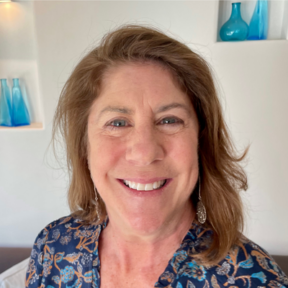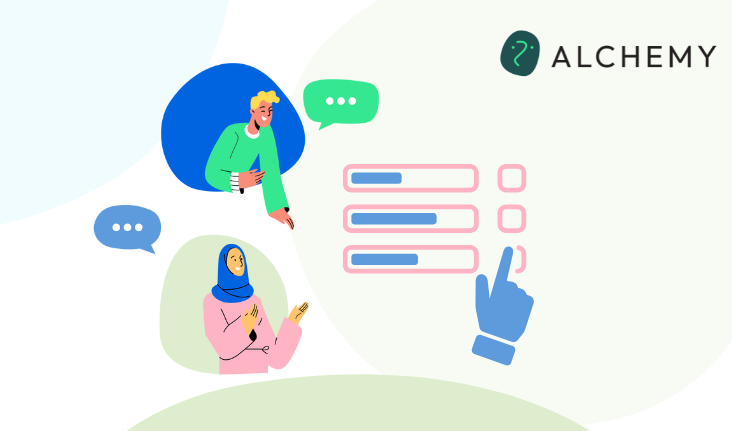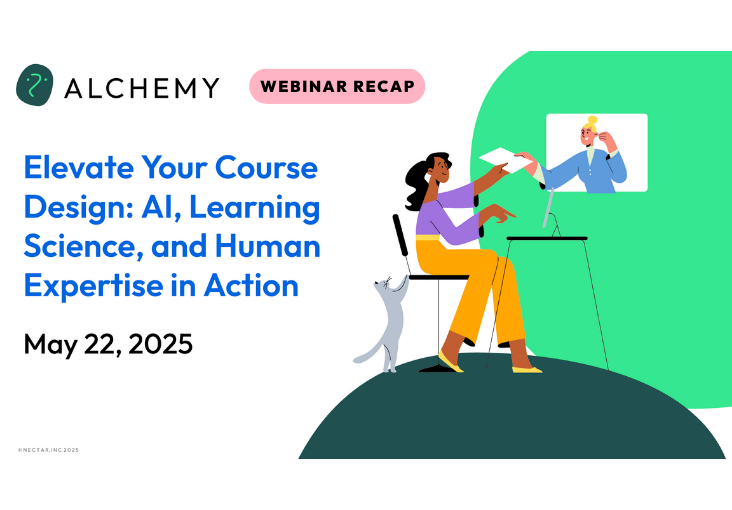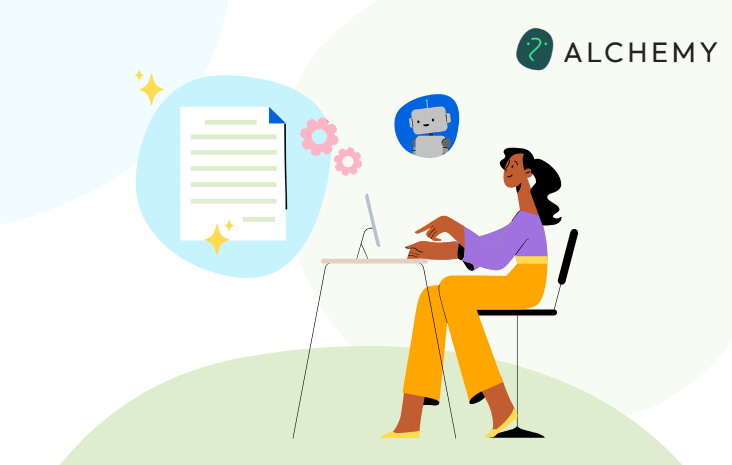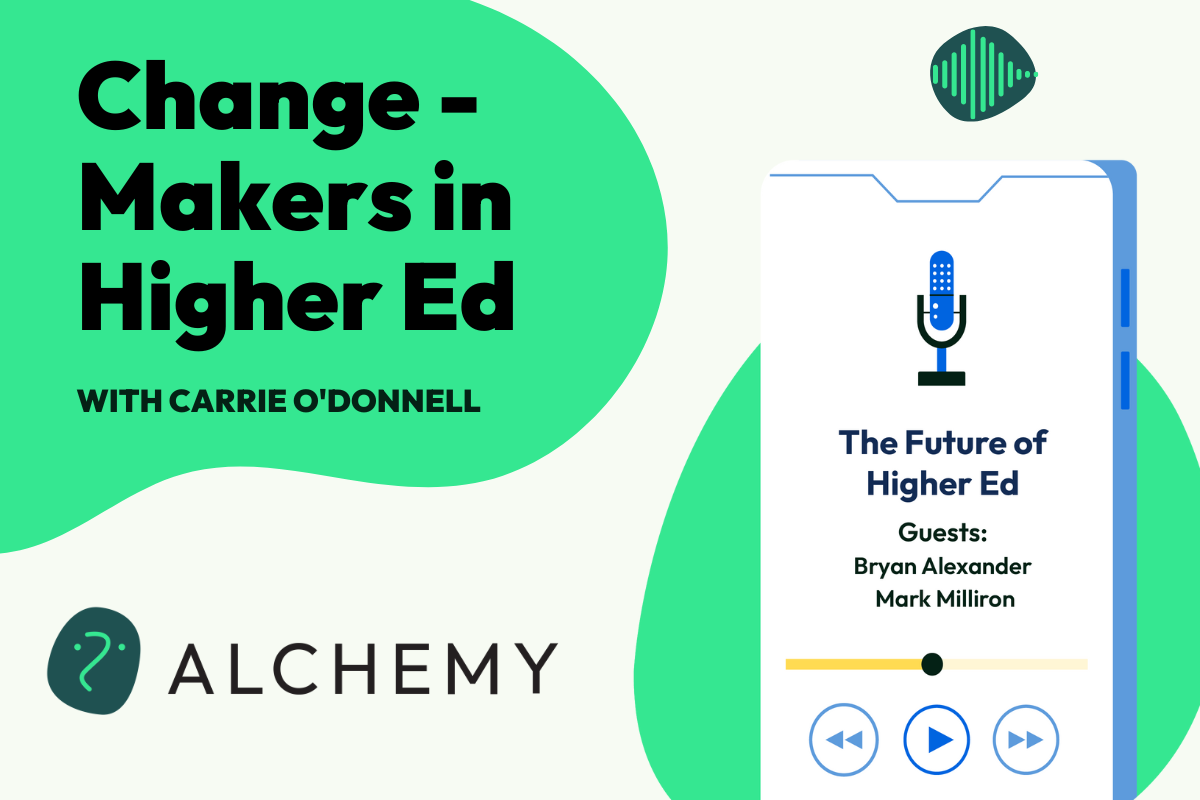
On Change-Makers in Higher Ed, our new podcast, we’re introducing our listeners to fellow alchemists, individuals who are transforming higher education. What better way to introduce a series of conversations with change-makers than to start with a discussion of the future?
In our first episode, The Future of Higher Ed, we hear from two experts, Bryan Alexander and Dr. Mark David Milliron, who are each pioneering change in the higher education landscape. Bryan is an internationally known futurist and researcher, who just released his latest book “Universities on Fire: Higher Education in the Climate Crisis.” Mark is an award-winning leader, author, speaker, and consultant, currently serving as President & CEO of National University.
Together, with our CEO and podcast host Carrie O’Donnell, Mark and Bryan show us the path to a future with the potential to be bright, if we collaborate, innovate, and are willing to change, together. Their conversation spans a wide range of topics related to the current state and future of higher education, including:
The Impact of the COVID-19 Pandemic
The Covid-19 pandemic irrevocably changed how we learn and teach, two keystones in higher ed. Furthermore, the pandemic seemingly overnight shifted the institution’s nucleus, the quad, to the cloud.
Mark Milliron talks us through the ways in which the pandemic motivated higher ed to speed up. “We’re at this moment where normal wasn’t working for a lot of people and the new normal isn’t enough… People began to value the 25 years of digital learning experience.”
The Importance of Improving the Faculty Experience
In 2022, Alchemy completed a national study of the faculty experience, in which we learned that 50% are burnt out, 44% have considered leaving higher ed and 55% said that they don’t have enough time to create effective experiences for their students. Both Bryan and Mark are clear that even if it’s expensive, increasing support for educators is a must; they also need the time and space to be effective. However, the other reality at play is the precarious financial situation at many institutions. “It’s a real bottleneck with a lot of pain,” Bryan explains.
Meeting Students Where They Are
Prior to and during the height of the pandemic, we looked at virtual and in-person learning as different, if not completely opposed. Now, they coexist and are even intertwined. Mark says, “I think people woke up to the power of design thinking during the pandemic. In that we had to begin with empathy. We had to understand who our students were and then begin to be clear about the problem we were trying to solve and ideate the challenge.”
Mark describes higher ed as a family of experiences including orientation, advising, support, peer relationships, internships, and co-curricular activities. He offers that “the notion of learning experience design has become real. And it’s now a thing where people are thinking, how do I curate and create that experience for my students in a very different way?”
Institutions Working to Become More Inclusive
In this episode, we hear just a bit about how higher ed is reckoning with civil rights, as Bryan explains, “The so-called reawakening about social justice, in particular about racism and anti-racism, that really took off in 2020 with the protests following the death of George Floyd. I think those were some of the really huge drivers of change, accelerants of some preexisting changes and trends, and just the enormous changes for how higher education proceeds and we’re still engaged in those.”
Generation Z Paving a New Path Forward
We talk about how Gen Z gets a bad rep when they’re actually change-makers inheriting an incredibly flawed system. A system that they’re dismantling and reimagining. Bryan notes, “This is the Greta Thunberg generation. They want revolution now. But their elders are not quite there and I think we have to reckon with that.”
Mark supports the need for intergenerational learning, “I love the idea of our mission in part being to teach students about the complex, dynamic, evolving world that they’re going to be inheriting. We’ve gotta be willing to learn together as we’re taking on this work because we have an opportunity right now to be more impactful than ever before in human history.”
The Climate Crisis
Carrie poses the question of whether higher ed is preparing for climate change. Bryan offers, “If I’m gonna fly to California and give a talk at one of Mark’s classes, I’m gonna be spewing a lot of CO2 into the air. I think academia is just this close to realizing our carbon footprint is bigger than it has to be and more and more online looks like a net win for climate activism.”
Mark adds, “Climate change is the ultimate example of systems theory at scale, right? In terms of how it plays out. And what you learn in this kind of systems thinking is the insanity of selfishness at scale, right? The idea that if selfishness at scale is disastrous, right? And it can, and if you think about it in the pandemic or if you think about it in climate change, it’s how it plays out.”
Resistance to Change is Part of the Process
A key takeaway from the conversation is that resistance is an inevitable and continual step in the implementation of change. Mark eloquently offers a peek into history to explain this resistance. “That’s what happened with railroads. It happened with electricity. Now, it’s happening with the internet. And there’s always moguls, there are always infrastructure issues, always governments at play. And then, once it gets to ubiquity, these patterns just seem to come back. And, if you look back, say 1900, 1920, you get people obsessing over railroad policy, which seems completely alien right now.”
Thinking Ahead
Bryan calls himself a futurist. Mark calls himself a possibilist. To us, these titles have symbiosis. Mark clarifies, “Don’t call me an optimist. An optimist makes me feel unrealistic. I’m a possibilist. I think we can absolutely change the world, but we’re gonna absolutely need to champion education to do it.” Bryan and Mark are championing a better future for higher ed. At the end of listening to this episode, we hope you’re as engaged in creating the future Bryan and Mark aspire to, as we, at Alchemy, are. Tune in to hear the full conversation and subscribe to follow our first season.
